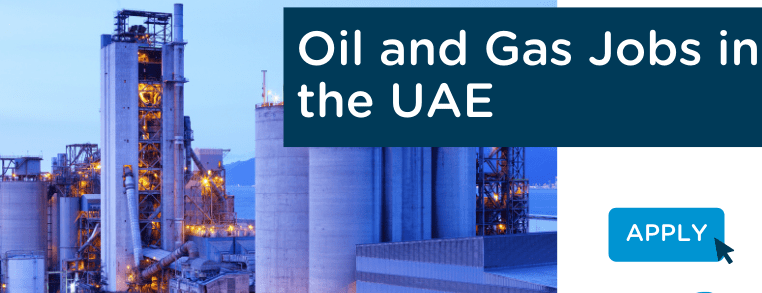
Oil and Gas Jobs in Dubai
Oil and Gas Jobs in Dubai The UAE has one of the largest oil and gas production areas, with companies such as Shell and BP producing nearly one billion barrels of oil per day. These companies are responsible for refining, selling, and marketing these commodities. They also upskill the workforce in these fields. With oil and gas projects spread across 120 countries, there are plenty of Oil and Gas jobs in Dubai for the skilled and hardworking. To learn more about oil and gas jobs in Dubai, continue reading!
Oil and gas production in the UAE:
If you’re interested in pursuing a career in oil and gas production, there are several options for you in the emirate. The United Arab Emirates is a major energy producer and exporter, with 97.8 billion barrels of proven oil reserves, most of which is located in Abu Dhabi. The UAE’s oil and gas industry accounts for approximately 38% of the country’s GDP. In addition to oil and gas production, the UAE’s economy is diversified through construction, tourism and manufacturing.
If you’re fresh out of college, applying for entry-level oil and gas production jobs is a great option. You can apply for oil and gas jobs through job recruitment agencies in the middle east. These agencies specialize in finding entry-level oil and gas jobs for fresh graduates. Job vows is the premier search platform for oil and gas jobs in the UAE. In addition to entry-level positions, there are plenty of beginner oil field jobs available.
Oil and gas companies in Dubai:
There are many Oil and Gas companies in Dubai, but which ones are the most successful? These companies are sought after for their high-quality service and booming growth. These companies have won numerous accolades, and they are the envy of every job seeker. Listed below are the 10 most successful Oil and Gas companies in Dubai. The ranking is based on their number of successful major projects handled and recognition. These companies are also recognized for their expansions.
The UAE has been looking for new ways to develop its oil and gas industry. The country currently imports natural gas from Qatar through the Dolphin pipeline, but aims to become self-sufficient in gas by 2030. In the meantime, the UAE is considering a project called the Hydrogen Alliance, which will produce blue hydrogen and export it to the rest of the world. The companies involved in this project have a long-term investment horizon and will continue to invest in exploration, development, and production.
Oil and gas projects in 120 countries:
The oil and gas industry has announced plans to invest USD 1.4 trillion in new extraction projects. These new facilities will lock in 148 giga tones of CO2 emissions. This amount of CO2 is equivalent to the emissions from 1200 new coal-fired power plants in the US. Eighty percent of this expansion will come from the United States, Canada, and Argentina. China also plans to invest USD 1.4 trillion in new extraction projects.
Iran, the Caspian-coastal country, opened up its oil sector to international investment in the mid-90s but remains under international sanctions. In July 2001, the country established the Supreme Energy Council to oversee the energy sector. The National Iranian Oil Company, under the Ministry of Petroleum, is responsible for all upstream oil projects. Upstream oil projects include production and export infrastructure. The report also includes Uzbekistan, which has considerable area within the Caspian basin.
Upskilling the oil and gas workforce:
Upskilling the oil and gas workforce offers numerous benefits. Besides avoiding the cost and social impact of recruitment campaigns, this practice enables companies to retain the skills and knowledge of mid-career engineers. Moreover, upskilling employees helps them transition to renewable energy and project an image of responsible corporate citizens. To upskill employees, companies should implement a comprehensive plan for upskilling.
In addition to training existing employees, recruiters must also be able to attract fresh talent for these positions. For example, senior reservoir engineers and drilling and process engineers must have a master’s or bachelor’s degree, as well as 10 years of relevant experience. Other roles require candidates to have specialized training in field operations. These professionals should have excellent knowledge of HSE. The salaries range between Dh5,000 and Dh7,000 a month.
